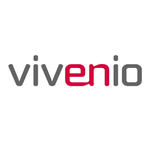Description

Cvent

Oxford Abstracts
Comprehensive Overview: Cvent vs Oxford Abstracts
Cvent and Oxford Abstracts are both prominent players in the event management software industry, offering tools designed to streamline and enhance event planning and management processes. Here is a comprehensive overview of these platforms:
a) Primary Functions and Target Markets
Cvent:
Primary Functions:
- Event Management: Cvent offers a wide range of tools for managing events of all sizes, including venue sourcing, event registration, and attendee engagement.
- Onsite Solutions: Features such as mobile event apps, on-site check-in, and lead capture help manage events on the ground.
- Marketing & Management: Includes tools for email marketing, surveys, and event reporting/analytics.
- Virtual Events: Provides comprehensive solutions for online events, including broadcasting, engagement, and analytics.
Target Markets: Cvent primarily targets large enterprises, associations, and organizations that regularly host large-scale events, both in-person and virtual. Many of its clients are in sectors such as corporate business, hospitality, education, and government.
Oxford Abstracts:
Primary Functions:
- Abstract Management: The platform specializes in abstract submission and review management, making it ideal for academic conferences and research events.
- Conference Management: Offers registration handling, scheduling, and speaker management.
- Virtual and Hybrid Events: Supports features necessary for conducting virtual or hybrid events, focusing on speaker and content management.
Target Markets: Oxford Abstracts is tailored more towards academic institutions, research bodies, and professional societies that manage conferences and events centered around academic and scientific outputs.
b) Market Share and User Base
Cvent:
Cvent is one of the leaders in the event management software market, particularly favored by large organizations and enterprises due to its comprehensive suite of tools and scalability. Given its extensive product offerings and robust integrations, Cvent boasts a significant market share with a substantial user base worldwide, providing solutions to thousands of customers across various industries.
Oxford Abstracts:
While not as widely adopted as Cvent in terms of overall user base, Oxford Abstracts holds a niche but vital position in the academic and research conference segment. Its specialized focus makes it a go-to solution for institutions that require detailed abstract management capabilities, albeit with a smaller market share compared to generalist platforms like Cvent.
c) Key Differentiating Factors
Cvent:
- Comprehensive Suite: Cvent offers a full range of tools covering every aspect of event management, which can cater to a wide variety of events.
- Scalability and Integrations: Designed for scalability with a strong focus on integration capabilities, making it suitable for large enterprises.
- Industry Reach: Its focus extends beyond just conferences to include hospitality and venue management, enhancing its appeal to a broader market.
Oxford Abstracts:
- Specialization in Abstract Management: Its strength lies in managing the submission and review process for abstracts, posters, and papers, which is particularly beneficial for academic conferences.
- Cost-Effectiveness for Niche Events: Typically offers solutions that are more budget-friendly for smaller or specific events such as academic or scientific conferences.
- Ease of Use: Designed with simplicity and ease of use in mind, particularly appealing to users with specific needs in the academic field who may not require a comprehensive suite.
In summary, while Cvent and Oxford Abstracts overlap in the event management space, they serve different niches with distinct strengths. Cvent is versatile and scalable, fitting for a wide range of event types and industries with a focus on comprehensive event solutions, whereas Oxford Abstracts caters specifically to the needs of academic and scientific conferences with a strong focus on abstract and content management.
Contact Info

Year founded :
1999
Not Available
Not Available
United States
Not Available

Year founded :
Not Available
Not Available
Not Available
Not Available
Not Available
Feature Similarity Breakdown: Cvent, Oxford Abstracts
Cvent and Oxford Abstracts are both event management platforms aimed at streamlining the process of organizing and running events, though they cater to somewhat different market segments. Here's a breakdown of their feature similarities and differences:
a) Core Features in Common
Both Cvent and Oxford Abstracts offer a suite of core features designed to aid in effective event management. These include:
-
Event Registration: Both platforms allow for customizable event registration, handling various ticket types and capacities.
-
Agenda Management: They offer tools to create and manage event agendas, including sessions, workshops, and panel discussions.
-
Speaker Management: Both platforms support the management of speakers, including bio and session upload capabilities.
-
Attendee Engagement: Features like live polling, Q&A, and surveys are present to enhance attendee interaction during events.
-
Event Analytics and Reporting: They provide analytics tools to gather insights from the event, including attendance stats and engagement metrics.
-
Marketing Tools: Email marketing and promotional tools are included to help spread the word about events and manage communication with attendees.
-
Customizable Websites: Both platforms offer the ability to create branded event websites as a hub for information.
b) User Interface Comparison
-
Cvent: Known for its comprehensive suite of features, its interface can be both a strength and a challenge. It offers a robust, feature-rich UI suitable for large organizations who require detailed configurability and integration across multiple aspects, like marketing automation and CRM. Some users may find it complex or overwhelming due to the breadth of features.
-
Oxford Abstracts: Typically favors a more streamlined and user-friendly interface, focusing heavily on academic conferences. Its UI is designed to be intuitive and accessible, prioritizing ease of use over extensive customization. This simplicity can be particularly appealing to smaller teams or those focused specifically on academic or abstract-driven events.
c) Unique Features
-
Cvent:
- Extensive Integrations: Cvent offers a wide range of integrations with other enterprise systems like CRM, HR, and marketing platforms (e.g., Salesforce, Marketo).
- Onsite Solutions: Features like onsite check-in with badge printing and RFID tracking set it apart, catering to large-scale and in-person events.
- Supplier Network: Access to a vast supplier network for venue sourcing can be particularly useful for event planners dealing with large, multi-faceted events.
-
Oxford Abstracts:
- Abstract Management: Known for its strong abstract management tools, it allows for an in-depth peer review process and is highly favored by academic conference organizers.
- Focus on Academic Conferences: Provides features specifically designed for the academic community, including support for multi-track events and scientific posters.
- Simplicity and Specialization: Its specialization in handling academic submissions and reviews makes it stand out for educational and scientific communities.
In summary, while there is considerable overlap in features, the choice between Cvent and Oxford Abstracts often comes down to the specific needs of the event: Cvent excels in comprehensive, large-scale corporate events, whereas Oxford Abstracts is tailored for academic and simpler conference setups.
Features

Event Management
Venue Sourcing
On-site Solutions
Attendee Engagement

Detailed Reporting and Analytics
User-Friendly Interfaces
Intuitive Event Management
Streamlined Abstract Submissions
Efficient Review Management
Best Fit Use Cases: Cvent, Oxford Abstracts
When evaluating event management and abstract management software like Cvent and Oxford Abstracts, it's essential to understand how each solution aligns with specific business needs, project types, and industry requirements. Here's a breakdown by use case and scenario:
Cvent
a) Best Fit Use Cases for Businesses/Projects:
- Corporate Events: Cvent is an excellent choice for large corporations that host a diverse range of events, including conferences, seminars, product launches, and networking events. Its robust features cater to complex logistical needs and high attendee volumes.
- Trade Shows and Expos: The platform offers tools for managing large-scale events with multiple exhibitors and sessions, making it ideal for trade show organizers.
- Event Agencies and Professional Planners: Agencies that handle multiple clients and diverse event types benefit from Cvent's comprehensive toolkit for planning, execution, and analysis.
- Higher Education Institutions: Universities hosting conferences or symposiums can utilize Cvent’s capabilities to manage RSVPs, agendas, and attendee engagement.
Industry Verticals and Company Sizes:
- Enterprise-Level Organizations: Cvent is suited for larger organizations due to its scalability and extensive feature set, which can accommodate the needs of global event planning.
- National and International Associations: These groups often require powerful data collection and reporting features for member events, which Cvent provides.
- Hospitality and Travel: Hotels and travel companies use Cvent for integrated venue management and event booking capabilities.
Oxford Abstracts
b) Preferred Scenarios:
- Academic Conferences: Oxford Abstracts is particularly well-suited for academic, scientific, and medical conferences that require abstract submission, review, and scheduling. It simplifies the management of scholarly content and peer reviews.
- Research Institutions and Universities: The software is designed with features that cater to organizing academic events, making it a preferred choice for research departments hosting seminars or symposiums.
- Smaller Conferences and Workshops: Its user-friendly interface and focus on content management make it ideal for smaller-scale events that prioritize scholarly interaction over logistical complexity.
Industry Verticals and Company Sizes:
- Academic and Research Sectors: These industries often require specialized solutions for managing abstracts, papers, and conference scheduling, which Oxford Abstracts effectively provides.
- Non-Profits and Associations with Academic Focus: Organizations that frequently organize educational and research-oriented events benefit from Oxford Abstracts’ streamlined processes.
- Small to Medium-sized Enterprises (SMEs): While its focus is more on academic content management, Oxford Abstracts is suitable for SMEs in the research space due to its affordability and ease of use.
In summary, Cvent and Oxford Abstracts cater to distinct segments of the event management landscape. Cvent is well-suited for large-scale, complex corporate and trade events, with its broad feature set supporting various industries and enterprise-level needs. In contrast, Oxford Abstracts is tailored more towards academic and research-focused events, providing specialized tools for those needing robust abstract management and peer review functionalities.
Pricing

Pricing Not Available

Pricing Not Available
Metrics History
Metrics History
Comparing undefined across companies
Conclusion & Final Verdict: Cvent vs Oxford Abstracts
In evaluating Cvent and Oxford Abstracts, it's crucial to assess which product offers the best overall value based on various factors relevant to event management software. Here's a detailed conclusion and final verdict:
a) Best Overall Value
Cvent tends to offer the best overall value for larger organizations or those hosting complex, large-scale events requiring extensive features such as event marketing, onsite solutions, integrated payment processing, and robust analytics. It provides a comprehensive suite that accommodates a wide range of event management needs.
Oxford Abstracts is an excellent choice for academic and smaller-scale conferences, specifically in managing abstracts and organizing scholarly events. It offers a niche toolset that is both effective and efficient for these purposes at a competitive price.
b) Pros and Cons
Cvent
Pros:
- Comprehensive Features: Provides a full range of event management tools from start to finish.
- Scalability: Can handle events of any size, making it suitable for large conferences, trade shows, and corporate events.
- Integration: Integrates well with CRM systems, social media, and other third-party applications.
- Customer Support: Offers robust customer support and training resources.
Cons:
- Cost: Higher price point, which may not be ideal for smaller organizations or events with limited budgets.
- Complexity: Can be complex to implement and use, requiring training and onboarding time.
Oxford Abstracts
Pros:
- Simplicity and Ease of Use: User-friendly interface that simplifies the abstract submission and review process.
- Affordability: More cost-effective for smaller events or academic conferences.
- Specialization: Specifically designed for managing abstracts and academic content effectively.
- Flexible: Offers flexibility in managing various types of academic event data.
Cons:
- Limited Scope: Focuses primarily on abstract management, which might not be sufficient for larger, integrated event management needs.
- Feature Limitations: Does not offer the full range of event management features that larger platforms like Cvent provide.
c) Recommendations
-
For Large-Scale and Complex Events: Cvent is the recommended solution due to its all-in-one platform that offers extensive features catering to large events. Organizations that have the budget to invest in a comprehensive tool will find Cvent's capabilities worth the cost.
-
For Academic and Small-Scale Events: Oxford Abstracts is better suited for academic conferences and smaller events where abstract and presentation management are the primary focus. It's a cost-effective solution that provides necessary functionalities without overwhelming features.
-
Cost Considerations: Users should carefully assess their budget against the expected return on investment. If cost is a significant constraint, Oxford Abstracts provides excellent value in its niche.
-
Specific Needs and Priorities: Users should conduct a needs assessment of their event requirements. If abstract and academic content management are top priorities, Oxford Abstracts is the clear choice. Conversely, for broader event management functionalities, including complex data integration, Cvent is preferable.
Ultimately, the decision should align with the organizational goals, event scale, and specific functionalities required, ensuring that the chosen platform supports both immediate and future event management needs.
Add to compare
Add similar companies



